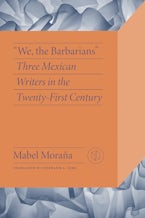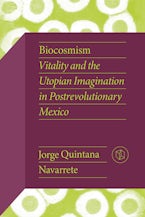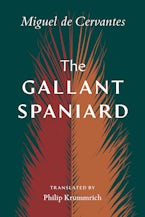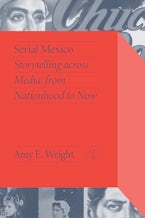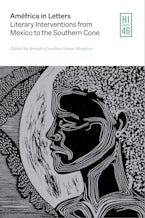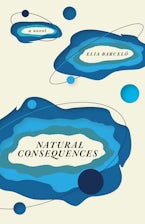- Home
- Borges and Kafka, Bolaño and Bloom
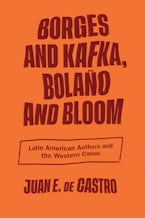
Borges and Kafka, Bolaño and Bloom
Latin American Authors and the Western Canon
At a time in which many in the United States see Spanish America as a distinct and, for some, threatening culture clearly differentiated from that of Europe and the US, it may be of use to look at the works of some of the most representative and celebrated writers from the region to see how they imagined their relationship to Western culture and literature. In fact, while authors across stylistic and political divides—like Gabriela Mistral, Jorge Luis Borges, or Gabriel García Márquez—see their work as being framed within the confines of a globalized Western literary tradition, their relationship, rather than epigonal, is often subversive.
Borges and Kafka, Bolaño and Bloom is a parsing not simply of these authors' reactions to a canon, but of the notion of canon writ large and the inequities and erasures therein. It concludes with a look at the testimonial and autobiographical writings of Rigoberta Menchú and Lurgio Gavilán, who arguably represent the trajectory of Indigenous testimonial and autobiographical writing during the last forty years, noting how their texts represent alternative ways of relating to national and, on occasion, Western cultures. This study is a new attempt to map writers' diverse ways of thinking about locality and universality from within and without what is known as the canon.
Borges and Kafka, Bolaño and Bloom is a parsing not simply of these authors' reactions to a canon, but of the notion of canon writ large and the inequities and erasures therein. It concludes with a look at the testimonial and autobiographical writings of Rigoberta Menchú and Lurgio Gavilán, who arguably represent the trajectory of Indigenous testimonial and autobiographical writing during the last forty years, noting how their texts represent alternative ways of relating to national and, on occasion, Western cultures. This study is a new attempt to map writers' diverse ways of thinking about locality and universality from within and without what is known as the canon.
Introduction
Chapter 1: Harold Bloom in the Hispanic World: From Classic to Canon
Chapter 2: Latin American Women Writers and Western Literature: On Sor Juana, Gabriela Mistral, and Others
Chapter 3: Jorge Luis Borges and the Canon
Chapter 4: Rewriting Kafka in Latin America
Chapter 5: Gabo's Canon: Gabriel García Márquez and the World Canon
Chapter 6: Roberto Bolaño on/in the Canon
Chapter 7: Indigenous Writers and the West
Epilogue
Notes
Works Cited
Index
Chapter 1: Harold Bloom in the Hispanic World: From Classic to Canon
Chapter 2: Latin American Women Writers and Western Literature: On Sor Juana, Gabriela Mistral, and Others
Chapter 3: Jorge Luis Borges and the Canon
Chapter 4: Rewriting Kafka in Latin America
Chapter 5: Gabo's Canon: Gabriel García Márquez and the World Canon
Chapter 6: Roberto Bolaño on/in the Canon
Chapter 7: Indigenous Writers and the West
Epilogue
Notes
Works Cited
Index
Juan E. De Castro is a professor of literary studies at Eugene Lang College of Liberal Arts at The New School. He is the author of Writing Revolution in Latin America: From Martí to García Márquez to Bolaño and Bread and Beauty: The Cultural Politics of José Carlos Mariátegui, among other works.
"A superbly written and effectively organized book that defines an innovative scholarly project and represents a timely contribution to the current debates on world literature. Conducted through the lens of canon and canonicity, it underscores the indispensable role of literary history for grasping the complexity and contradictions of canon formation. It reframes the histories of western canon in order to call attention to the foundational contributions of Latin American writers such as Borges, García Márquez, and Bolaño. It carries out a superb analysis of the specific cultural and political iconography developed through the writings of these authors as well as contemporary Indigenous intellectuals from Guatemala and Perú."
—Gorica Majstorovic, author of Global South Modernities: Modernist Literature and the Avant-Garde in Latin America
"Masterfully exploring the intersection of Latin American literature with the Western canon, De Castro concentrates mainly on three masters who not only are representative of the evolution of this region's fiction but have also become part of the Western canon and world literature, all the while theorizing the canon and their own relationship to it: Borges, who assimilated 1910s and 1920s modernist and avant-garde European literature; García Márquez, who responded to 1950s modernist narrative; and Bolaño, with his post-national and postmodern novels. From the impact of Bloom's theories on Hispanic criticism, to Borges's irreverent ideas on how peripheral authors can freely use the "Western tradition," and the under-examined impact of Kafka in the region, passing through García Márquez's dialogue with Western modernist classics and Bolaño's surprisingly traditional view of the canon, and closing with the recent explosion of Indigenous writing in Spanish and other languages, this study is a true eye-opener that will challenge the reader's assumptions by disclosing how these Latin American authors concomitantly subverted the Western canon and old Western stereotypes about the region."
—Ignacio López-Calvo, author of Written in Exile: Chilean Fiction from 1973-Present

